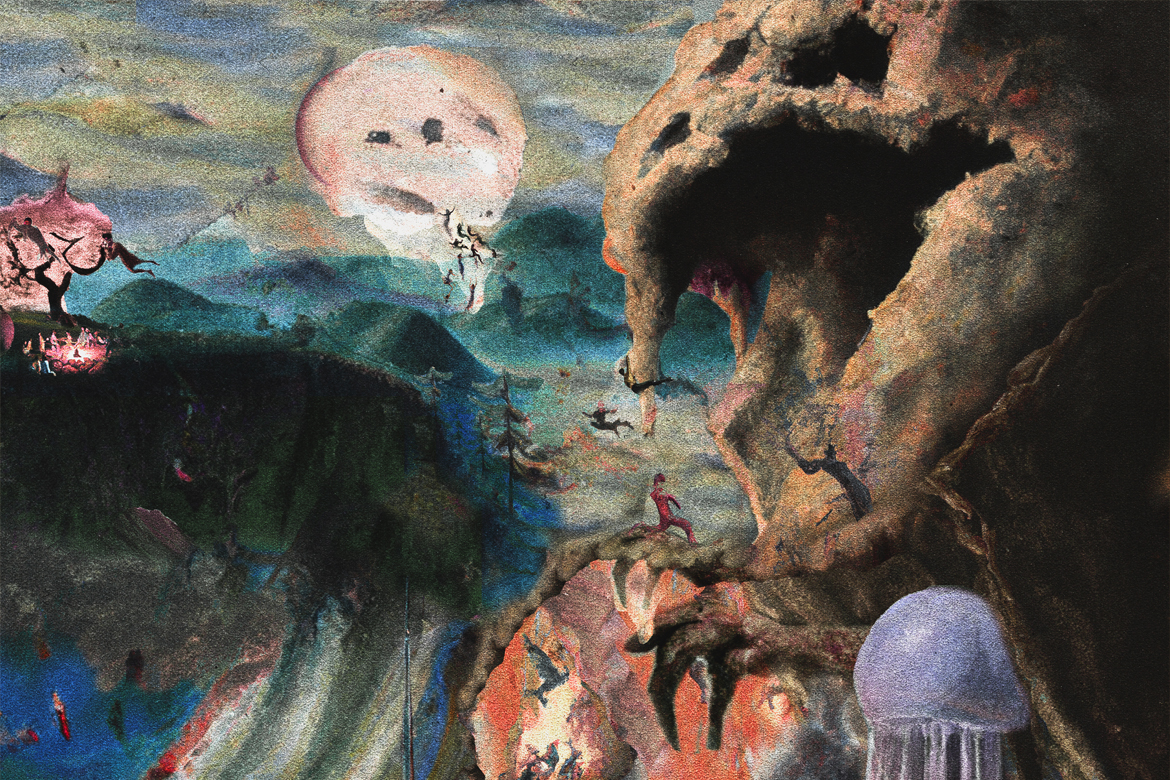“I had a dream we never existed.”
With 2024 marking their fourteenth year as a band, calling Like Moths To Flames mainstays would be an understatement. Consistently producing emotionally charged music, their honest approach to songwriting has struck a chord with many over the years. Undergoing numerous lineup changes, vocalist Chris Roetter remains the only founding member of the band, but that hasn’t hindered Like Moths To Flames in continuing to produce stellar work that stands up with their all-time greats. This was especially evident with their 2021 EP, Pure Like Porcelain, as the record saw the band unlock a new dimension to their sound, proving more ferocious and despondent than before. The lead up to their fifth album, The Cycles of Trying to Cope, shows promise in furthering that notion.
With the initial two singles, “Angels Weep” and “Paradigm Trigger”, the bar was set high. The former saw one of the band’s most feral performances to date, with Roetter’s screams peaking in vicious shrieks amidst an ominous soundscape. Guitarists Zach Pishney and Cody Cavanaugh unleash a barrage of aggressive riffs, working in cohesion with drummer Roman Garcia as his flurries of kicks and fills give the track even more punch. The band’s music has always been despondent, and “Angels Weep” takes that to a new high (or low, depending how you look at it). “Paradigm Trigger” keeps the bleakness going, twisting and turning with its song structure and creating for an unpredictably engaging experience. With more melodic twists and a slower, brooding tempo, the track contrasts well against its companion single while still remaining cohesive.
In sharp, yet not unwelcome contrast, third single “Kintsugi” showcases the band’s melodic side. Drawing from their sound on Dark Divine, it takes on more somber tones and scales back the aggression for a more classic, yet refreshed LMTF sound. Roetter’s singing has improved significantly over the years, with his performance on this track standing as particularly emotional, and strong in its delivery. Pishney’s lead work on the track lends to its approach, making for a track that showcases the band’s impressive range at this stage in their career.
With “Angels Weep” being the opener, the album pulls no punches from the start. Early cut “Over the Garden Wall” opens on a menacing riff, launching into the aggressive chugs that the band has proven a penchant for over the years. Choruses and hooks have always been some of the band’s strong suits, and Roetter delivers a satisfying balance through this, to an otherwise unrelenting track.
The album weaves between its extremes smoothly, playing to the strengths of the many styles explored by the band over the years. The unbridled aggression of their earlier work ties into their recent melodic leanings seamlessly, creating for a matured and whole sound for the album. True to the title of the album, the tracklist presents varying levels of intensity in an unpredictable fashion, illustrating the non-linear reality of coping. When the slower, sorrowful “Dissociative Being” swings into the vexed “The Shepherd’s Crown”, the abruptness feels akin to that of a mood swing. The inner turmoil is expressed in a genuine and raw manner.
Like Moths’ musical themes, as touched on previously, have historically been cynical and despondent, written from a place of vulnerability. Questioning divinity and the meaning of mortality, these have been hallmarks of the band’s sound since the start. The Cycles of Trying to Cope presents these themes with greater urgency and despair than before, with a great deal more nuance in its emotion. “To Know Is To Die” embodies this best in my opinion, with its ideation of humanity never existing. Between its dissonant instrumentation and Roetter’s exasperated vocals, the emotion of the track is undeniably felt. There’s an odd comfort to these jaded expressions, echoing the thoughts often experienced day-to-day.
The Cycles of Trying to Cope is undoubtedly Like Moths To Flames’ strongest material to date. It blends the many sonic phases of the band into a condensed, hard-hitting package that is a testament to the band’s constant evolution. Despite Roetter being the only original member of the band left, the essence of the band is not lost at all, with Pishney, Cavanaugh, and Garcia’s contributions only furthering it. An impressive display of technical ability and a candid expression of emotion, The Cycles of Trying to Cope resonates deeply.
8.5/10
The Cycles of Trying to Cope releases on the 10th of May via UNFD. Pre-order and merch links for the album can be found here.

